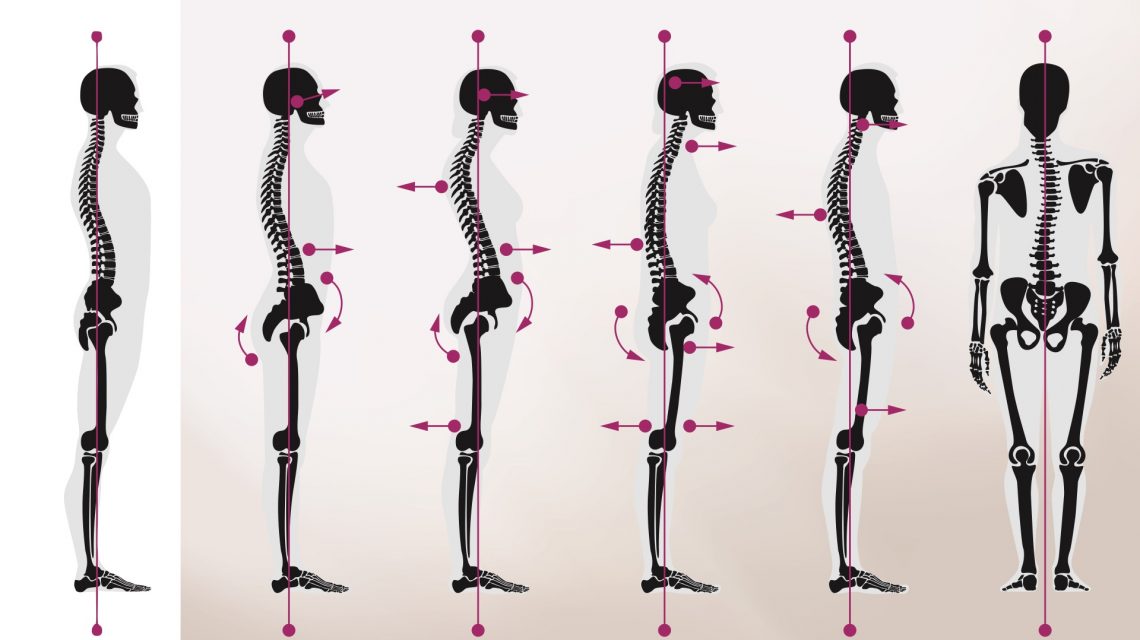Patients who experience frequent migraine pain and ear and jaw pain very often experience a lower quality of life. They are frequently dependent on heavy pain medication, and tend to avoid triggers that contribute to recurrent episodes of this debilitating condition. They are often misunderstood and misdiagnosed by their doctors and specialists, and often dismissed since their pain can’t be measured or tested.
Despite the 95% of migraine patients that are successfully treated in our office, there are some patients that continue to have residual challenges. What I have found, through the many years of treating chronic pain patients, is that posture can impact long-term symptom resolution and needs to be incorporated into treatment protocols for those neuromuscular dentists that choose to treat these types of patients.
The influence of muscle forces and vectors on mandibular jaw position cannot be limited to the masticatory muscles alone. Cervical and postural muscles also play a role. An ideal erect posture is a line of gravity down the midline of the following bilateral points: the center of the mastoid process; the point just anterior to the shoulder joints; the point through the hip joints; the point just anterior to the center of the knee joints; and the point in front of the ankle joints. The head will attempt to maintain a posture with its center of gravity midway between the mastoid process. The maintenance of this center of gravity is essential for the optimal neuromuscular function of the masticatory muscles.
The suprahyoid, infrahyoid, posterior cervical, anterolateral cervical, anterior cervical, and other cervical/upper thoracic muscles play a major role in maintaining head posture and coordinating mandibular function. Together, a finely coordinated, dynamic balance of cervical and cranial muscles determines mandibular movement.
Patients with craniocervical and postural issues often exhibit high EMG readings in some of the muscles even after 45 minutes of Myomonitor application. In some cases, the EMG readings may actually increase. This may be the result of nociceptive input emanating from cervical/postural muscles that pass through the caudate nucleus of the trigeminal ganglion and affects the masticatory muscles.
Failure to recognize the postural issues and muscle tension in the cervical-upper thoracic area can have a negative impact on arriving at an optimal and stable occlusion and can result in a relapse of the treated TMJ/MSD patient. If nociceptive areas are not relieved of pain and spasm, they refer pain to other sites. A myofascial trigger point (TP) is a hyper-irritable locus within a taut band of skeletal muscle tissue and the associated fascia. Active trigger points may refer pain to in masticatory muscles.
When posture is a complicating factor to full symptom resolution, patients will often work on this concurrently while undergoing treatment in or office, and we often work together with other therapists in order to achieve optimal results overall. If you are working with an osteopath, massage therapist, physiotherapist, chiropractor, acupuncturist, or any other health professional, please let us know so we can help you optimize the outcome by working together with your entire health care team.
Oakville Dentist, Dr. Agatha Bis, DDS received her Doctor of Dental Surgery degree from the University of Western Ontario in 1996. With over 25 years of clinical experience creating beautiful and healthy smiles, Dr. Bis offers a unique approach to dentistry, blending modern dental practices with the
use of digital technology to optimize health outcomes. With thousands of hours in post-graduate training, her unique focus and expertise in treating TMD and providing options in restorative dentistry, along with digital technology has led to helping numerous patients resolve chronic and debilitating dental challenges.

